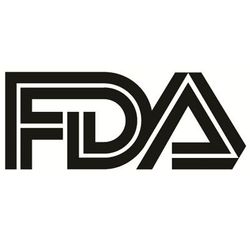
OR WAIT null SECS
Remission Rates Comparable Between Biosimilar CT-P13, Originator in Bio-Naïve Crohn’s Disease
At week 54, the clinical remission rate among patients receiving originator infliximab was 92.5% compared with 100% in the biosimilar CT-P13 group.
Clinical, endoscopic, and laboratory assessments revealed the infliximab biosimilar CT-P13 was comparable to the reference drug in terms of safety and efficacy among a cohort of bio-naïve patients with Crohn’s disease, according to research published in Arab Journal of Gastroenterology.1
Since its launch, infliximab, the first biologic drug for approved inflammatory bowel disease (IBD), has been shown to significantly reduce the need for hospitalization and surgery, improve mucosal healing and fistula closure, and has led to sustained remission among these patients.2
However, despite these advantages, biologics are generally less cost-effective compared with conventional treatments. Therefore, the use of these drugs can cause a significant financial burden on health systems. Therefore, after the patent expiration of the originator infliximab, biosimilar versions have been developed to combat this.3
“The infliximab biosimilar CT-P13 was the first biosimilar drug targeting tumor necrosis factor-α,” wrote a team of investigators from the Department of Gastroenterology, Graduate School of Medicine, Chiba University, Japan.1 “However, its efficacy and safety in real-world clinical situations have remained insufficient.”
The approval of CT-P13 by both the US Food and Drug Administration (FDA) and the European Medicines Agency (EMA) was originally based on data from clinical trials for rheumatoid arthritis (RA) and ankylosing spondylitis before later expanding the indication to treat IBD without the need for a clinical trial. Since this extension, the safety and efficacy of the biosimilar for the treatment of IBD have been confirmed using studies that focused on switching between the originator to a biosynthetic infliximab. These studies have revealed no clinically meaningful differences between the 2 drugs.4
In this retrospective, multicenter study, investigators used patient data from 3 hospitals in Chiba-city, Japan to confirm the safety and efficacy of the anti-tumor necrosis factor (TNF)-α biosimilar among these patients. To do so, they compared the remission rate at week 54 in patients who were receiving either the reference product or CT-P13 using the medical records of patients diagnosed with Crohn’s disease between January 2004 and November 2019. Both laboratory and endoscopic findings were assessed between cohorts. Laboratory data included serum albumin, hemoglobin, and C-reactive protein.1
The records of 443 patients with Crohn’s disease were initially collected. After excluding patients who were not treated with infliximab or CT-P13 (n = 195), or those who were previously treated with biologic agents (n = 64), a total of 184 patients were analyzed. Among these, 156 were treated with the originator and 28 received the biosimilar. Among this group, 138 in the originator cohort and 19 in the biosimilar group completed 54 weeks of treatment.1
At week 54, the clinical remission rate among patients receiving the originator was 92.5% compared with 100% in the CT-P13 group. Additionally, endoscopic scores significantly decreased from baseline across treatment arms, with a mucosal healing rate of 53% in the infliximab group and 64% in the biosimilar group.1
All laboratory data revealed significant improvements in hemoglobin, serum albumin, and C-reactive protein from baseline to week 14 and baseline to week 54 among both treatment groups. Although adverse events were reported more frequently in the biosimilar cohort (25% vs 4.5%, respectively; P = .0015), severe adverse events were rare in both cohorts.1
“The present study demonstrates the efficacy and safety of CT-P13 compared with originator IFX in a real-world environment in Japan,” investigators concluded.1 “This study establishes the needed groundwork for the development of a strategy for treatment with biologics in patients with Crohn’s disease.”
References
- Oike T, Akizue N, Ohta Y, et al. Efficacy and safety of biosimilar infliximab in bio-naïve patients with Crohn's disease. Arab J Gastroenterol. Published online May 6, 2024. doi:10.1016/j.ajg.2024.03.006
- Schaffer T, Schoepfer AM, Seibold F; Swiss IBD Cohort Study Group. Serum ficolin-2 correlates worse than fecal calprotectin and CRP with endoscopic Crohn's disease activity. J Crohns Colitis. 2014;8(9):1125-1132. doi:10.1016/j.crohns.2014.02.014
- Annese V, Duricova D, Gower-Rousseau C, Jess T, Langholz E. Impact of New Treatments on Hospitalisation, Surgery, Infection, and Mortality in IBD: a Focus Paper by the Epidemiology Committee of ECCO. J Crohns Colitis. 2016;10(2):216-225. doi:10.1093/ecco-jcc/jjv190
- Park W, Hrycaj P, Jeka S, et al. A randomised, double-blind, multicentre, parallel-group, prospective study comparing the pharmacokinetics, safety, and efficacy of CT-P13 and innovator infliximab in patients with ankylosing spondylitis: the PLANETAS study. Ann Rheum Dis. 2013;72(10):1605-1612. doi:10.1136/annrheumdis-2012-203091


